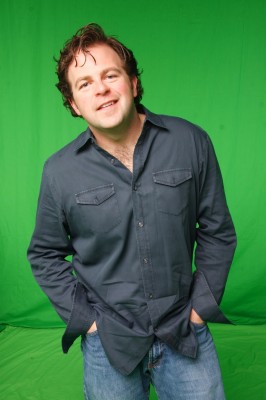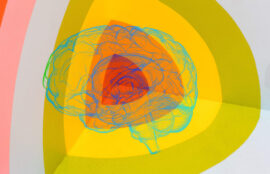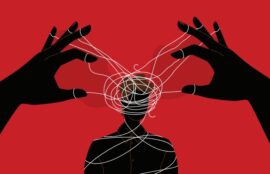We all strive for high achievement, and when we get there, we want to continually maintain and improve it, as well as avoid obstacles that hinder our growth. But what about the default patterns of behavior hard-wired in our brains that keep us from becoming the greatest version of ourselves? Regardless of how successful one becomes, we can all benefit from someone who can reveal within us the mechanisms to achieve peak mental performance and the fortitude to persevere through difficult circumstances. Life will always have unique challenges and working with someone who can reduce the psychological problems that interfere with our performance achievement is an expertise highly coveted among successful people.
The problem with many psychotherapists, mentors, coaches, psychologists, etc, is that they often adhere to very rigid protocols and procedures that barely scratch the surface, nor do they have the type of human connection needed to break through to the client’s core. There are many layers and modes of operation that the brain employs to make decisions and feel at ease. Within those layers, are functions that can also hinder the process of change, which require a highly skilled practitioner to navigate effectively. This is crucial when getting to the source of the what’s holding us back from living the best version of our lives.
 Enter Dr. Kevin Fleming, an expert in his field with a distinct and genuine approach to maximizing human potential. He is the founder of Grey Matters International, an exceptional behavior-change consulting firm with a neuroscience-based decision-making process. His proprietary approach to helping his clients is in high demand and continues to change lives worldwide. He has traveled the world to see clients in 5 continents, interacting with people from diverse backgrounds and industries. His methods yield results where shortcomings are common in traditional practices.
Enter Dr. Kevin Fleming, an expert in his field with a distinct and genuine approach to maximizing human potential. He is the founder of Grey Matters International, an exceptional behavior-change consulting firm with a neuroscience-based decision-making process. His proprietary approach to helping his clients is in high demand and continues to change lives worldwide. He has traveled the world to see clients in 5 continents, interacting with people from diverse backgrounds and industries. His methods yield results where shortcomings are common in traditional practices.
A seasoned professional, Dr. Fleming earned his B.A, M.A, and Ph.D from the university of Notre Dame, doing his postdoctoral residency in Behavioral Medicine. This background and experience adds to his impressive credentials and has helped him revolutionize how common issues of the human condition can be addressed. He brings together cutting-edge neuroscience with a concierge model of care, working one-on-one with a wide range of personalities to carefully tailor the perfect mental wellness solution for every client, some of whom include cabinet members of the King of Jordan, Fortune 100 executives and NFL players. He is a knowledgeable resource who has been cited in the New York Times, Fortune Magazine, Newsweek, CNN, The Huffington Post, and his work has received praise from the faculties of Harvard Medical and Business Schools.
Dr. Fleming’s company, Grey Matters International, is a change agent, revolutionizing the way people see and conduct themselves while navigating both personal and professional relationships. His expertise fills a void, addressing those who are tired of conventional “feel good” coaches, trainers and self-help experts, many of whom have little understanding of the high-performing brain and the real catalysts needed for lasting improvement.
We caught up with Dr. Fleming and asked him a few questions about his profession, as well as what makes his consulting firm different from everyone else in his field.
What is unique about your personal development consulting verses other personal development programs?
Grey Matters International is a unique neuroscience-based platform of technologies, insights, and behavior change strategies that are brought to client locations, in the form of intensives or private retreats, for the purpose of making sustainable transformations, not just in “superficial mood” but in actual decision making. Our company assumes irrationality of human beings as a “norm” and works hard to go beyond mere motivational trite mantras and into the contradictions within all of us. Unlike other personal development approaches which assume what you say is what you want, we know the brain is full of self-deceit at the worst, and maximizing efficiency at its best. Most self-help programs assume too much rationality and it’s why most of those programs don’t stick.
What motivated you to get into this line of work?
It was organic and not something I chose consciously….I knew helping people was always in my DNA and shrinks were the cornerstone to that….but I quickly learned that there I fell in love with the work around illusions and half-truths of those of us “doing” the helping work and that was what prompted Grey Matters Intl to be formed.
Why did you move away from a clinical practice to a consulting role? Did you feel the clinical approach was too rigid and unable to address key issues?
I invite people to download for free the Half Truth High, which explains a lot of this exodus from that side of things and over to this new model of work. You can do that from my homepage at: www.greymattersintl.com
Can you provide an example of how your program uses the power of neuroplasticity to change behavior?
Our private, concierge level retreats are always for one person (or couple) and with this personalization, we have the ability to do multiple, concentrated neuroplasticity methods. For one, we will measure neurochemistry and neuroregulatory hormones (If it’s applicable to their goals, of course) and be able to give them an actual analysis to view their levels, something most psychiatrists and other medical professionals sadly never do. We then are able to use this mapping as a guidepost for an all-natural, holistic roadmap of medicinals to repair the delicate balance again. We also have a neurotechnology that is quite profound in the neural network aspect of changing the brain fast and effective. Networks are where most of our patterned behaviors “rest” and we have an innovative way of astronomically balancing the brain and rebuilding neural pathways. Stories of change are unbelievable from this: www.greymattersintl.com/company/testimonials
You’ve said that “true inner change cannot occur when the approach is based on nothing more than thought and perception.” How can we break our negative patterns without rationally attempting to do so? Is this more of a challenge for the subconscious mind?
Great question. Yes, the stuff of “The Secret” and all the “just think it and it will happen to you”, are all half-truths at best. Sure, encountering the reality of the consequences of your thinking is a necessary but not sufficient condition for change. I have tons of examples of people who have radically changed their mood, behavior, and decisions without ever consciously changing their thoughts, and others who have worked so hard at trying to change their thinking that they get tripped up in it and paradoxically create more thinking traps from this practice. It was once said, “Happiness is in the waiting room of happiness”. This is profound, for it speaks to the balance ontologically around how we get to this state of fulfillment. Many times it is about paradox, and not only that, especially for first to second order change situations which is what most of my clients are actually seeking; they have consciously tried MANY self-help strategies and if anything they are at that place where their solutions are now the reason they are perpetuating their problem. Grey Matters International is a master at helping people see how we all can solve the wrong problem really well 🙂
Is emotional processing incorporated into your method of behavior change? Walk us through how are you able to help your clients process emotional trauma associated with the root cause of the behavior.
Yes and no. Emotions are always a part of what we desire to have change or shifted in our lives when we are stuck or have a goal to change, but I do feel we have overdone this….no, not in the value or importance, but in the misapplied strategies we use to get these shifts. I use the neurotechnology FIRST to repair emotional imbalance primarily for no amount of ’emotional processing” will fix a hole in a cup. All the water you pour into it will go out. One must fix first the capital F part of FEELINGS (ie: valence, arousal level) before getting into actual content of feelings and moving that to “small f” feelings. They merge and mingle too much and in my experience that confuses “emotional processing” work when done in talk therapy fashion which makes all words equal in valence and meaning.
“Medication or therapy are the cornerstones of traditional psychological enhancement.” Can you explain your position on this?
I believe all good things when misapplied to context or gone to an extreme become weaknesses, and meds and therapy are no different. It is a one size fits all kind of approach that I believe ignores the “every brain is a fingerprint” kind of unique way of thinking. Also, I do not feel processing of feelings over and over in therapy is good for a soul that is at risk of saturation of self.
What do your clients get from you that they can’t get anywhere else?
24/7 access to a renowned thought leader, done in a way that is quite down to earth, refreshing, psychobabble-free, and on demand to fit their lifestyle. A we-come-to-you model of care today is unheard of, especially in the many hats I wear fashion—from individual to couples work, to high performance work, to corporate/executive wellness, to team based facilitations. Also, fresh new thinking that is NOT being taught today in the medical and mental health circles around behavior change and transformation. Lastly, the most cutting edge neuroscience technologies is quite appealing to folks desiring innovation in their care.
“We must know our brain’s biases and errors in thinking, on a day to day basis, as well as the approaches being offered to us as brain changing.” Can you explain this statement in more detail?
Our own self-deceit and addiction to “being right” blocks all of us and the kind of sort of true solution we come up with to a problem and the actual full systems or maximally virtuous one BOTH get the same emotional response produced by the brain. The difference? Usually some sort of brain bias or self-protective quality at play. Being aware of this not only forces us to go beyond what merely makes sense; it allows a pathway to fuller truths and humility….something we don’t like to talk much about these days but is a cornerstone to lasting happiness.
‘Interrupting the decision-making process of the executive brain’ is something you have mentioned on your website. Does this interruption force one to think about how one is making decisions, therefore seeing the errors in the decision making process?
Well, disruption is the key to new transformative learning and breaking of new patterns. Many times my sophisticated or executive level clients’ narcissism blocks true growth and the best way to change these folks is causing “the right type of problems” instead 🙂 This can be done with accountability work in the realm of psychological boundaries, in a hard hitting no nonsense way, or via our neurotechnology which disrupts old patterns and creates new ones.
In your opinion, what are some of the root causes of negative patterns of behavior and thinking, and how does your consulting address this?
I would say 90 percent of this has to do with trauma. And I believe there are four types: Either acute or chronic, and either infringement based or abandonment based (so you can see a 2 by 2 matrix here is formed to create 4 types of individuals). Remember, trauma is NOT just something really bad happening to you. It is something violating to the brain’s predictive strategies around what a “normal, healthy expectation” is in this world of relationships and discovery. We ALL have been in these four boxes and to me that is where the core starts, from there, we create compensatory half-truth ways of living that eventually don’t take us to the finish line.
In a postmodern world full of multi-tasking and tight deadlines, it’s harder for people to have a linear focus on something. Our attention is inundated with multiple tabs, tight deadlines, and excessive work. What is your approach to performance enhancement in this scenario?
This is correct. While there are lots of neuroscience answers to healing a burned out/stressed out brain—and we certainly do a large amount of work in this area via our neurotechnology —the long term solution is really around boundaries and setting them inside a world that is essentially without boundaries. The brain was not meant to go 24/7 with no breaks. As Stanford neurobiologist Dr. Sapolsky mentions in his book “Why Zebras Don’t Get Ulcers”, unlike this animal in the wild who either enters or escapes immediate threat, we stay activated inside potential threats of urgency everyday, keeping us over stimulated. Without removing one’s self frequently for “little breaks” of non-work/non-engagement, this is all futile.
I did an interview on all this, with the technology expert for Today Show/CNN, Mario Armstrong: www.steinershow.org/podcasts/december-8-2011-hour-2/
Some of your past clients have mentioned that you helped them get down to their core values and find out what really matters to them. Sometimes what really matters to someone is not aligned with their career. Some people who are successful at making a lot of money aren’t necessarily passionate about it. As a mentor, coach, and consultant, how would you navigate this situation? Would you try to help them find meaning in their work or encourage them to take a new path?
We all make trade offs in life. I don’t “do” anything to my clients. All I do is invite them to explore their own personal cost/benefit ratios and take them through stages of change (precontemplation, contemplation, preparation, action, and maintenance). Most people try to take control of these people by telling them what to do just because there is some ambivalence and conflict. Each stage requires a different skill to engage in and through ambivalence, something we all don’t like because we are too busy being addicted to getting rid of dissonance in our life. Grey Matters International got its name not just because of the obvious brain allusions in the name, but because, philosophically, the greyness of life and the inherent unsureness of things “matters” in being as it is ….not to be therapized, medicated, persuaded away necessarily.
What are the most typical scenarios you find yourself consulting, example divorce, addiction, etc.
stress/burnout
addiction
relationship conflict and repair
high performance goals/issues
mood disorders
memory/cognitive/attentional goals
Traumatic Brain Injury and other post-concussive, or neurorehabilitation issues
Is your approach purely scientific? To what degree, if any, do spiritual or philosophical ways of dealing with life influence your professional career?
It is neurophilosophical and spiritual at its core, whether or not people “are” overtly spiritual or religious. There is definitely a contrarian common denominator to many not-of-this-world type ways of looking at life and solving problems. Take the idea of forgiveness and mercy. I can show this has neurophysiological benefits as well as functional outcome improvements in rational issues of life. However, the brain is addicted to one size fits all solutions and we many times ‘miss’ these counterintuitive aspects of healing as we are too busy holding a hammer and making the world a nail.
You work with a lot of people in high level positions, how do you think that level of responsibility and expectation effects those people?
In the 70’s a phrase called “imposter syndrome” was coined for an actual block that describes successful people’s inability to internalize their own achievements and integrate those into an identity that makes sense and is fulfilling. I believe this is a huge issue with today’s leaders who are working too hard at being someone they felt they were told to be and then having to try to “own” that life when all the rewards and pleasures are robbing their pleasure circuitries and confusing hedonism and happiness. I find these guys and gals are in a big work addiction cycle that is very tough to break, eventually all that “hard work” gets automatized and breaking from that lifestyle actually makes pain and suffering……just like withdrawal.
Can you tell me about the time you played guitar with a client? How did a decision like that end up creating a closer bond with you and the client?
It showed shrinks don’t always need to talk or work so hard at a verbal mode of listening together. Maybe we can radically disrupt the assumptions of “words” and use a whole ‘nother modality of connection and transcendence. That is music. And ego is removed and something greater is effortlessly created by just sharing notes together
You seem to have a balanced left and right brain way of solving problems. As a Jazz musician, what is your perspective on merging the analytical and the creative. Would you say that your methods are a little more unconventional, in a progressive way?
I am definitely an unconventional, renegade type professional, and able to smooth out all that roughness with Grace 🙂
You can read Dr. Flemings insightful articles by visiting: www.greymattersintl.com/blog, a blog dedicated to unraveling our cognitive and perceptual biases, and how our brain views what we think is true about change, success, high performance, leadership, and decision-making. His thought provoking blog reveals that we are all predictably irrational creatures who persist on a rational way of understanding achievement and the meaning of life.
www.twitter.com/DrKevinFleming
www.facebook.com/GreyMattersInternational
www.linkedin.com/in/greymattersintl
This is an AscensionLifestyle Promoted Article
























Sorry, the comment form is closed at this time.